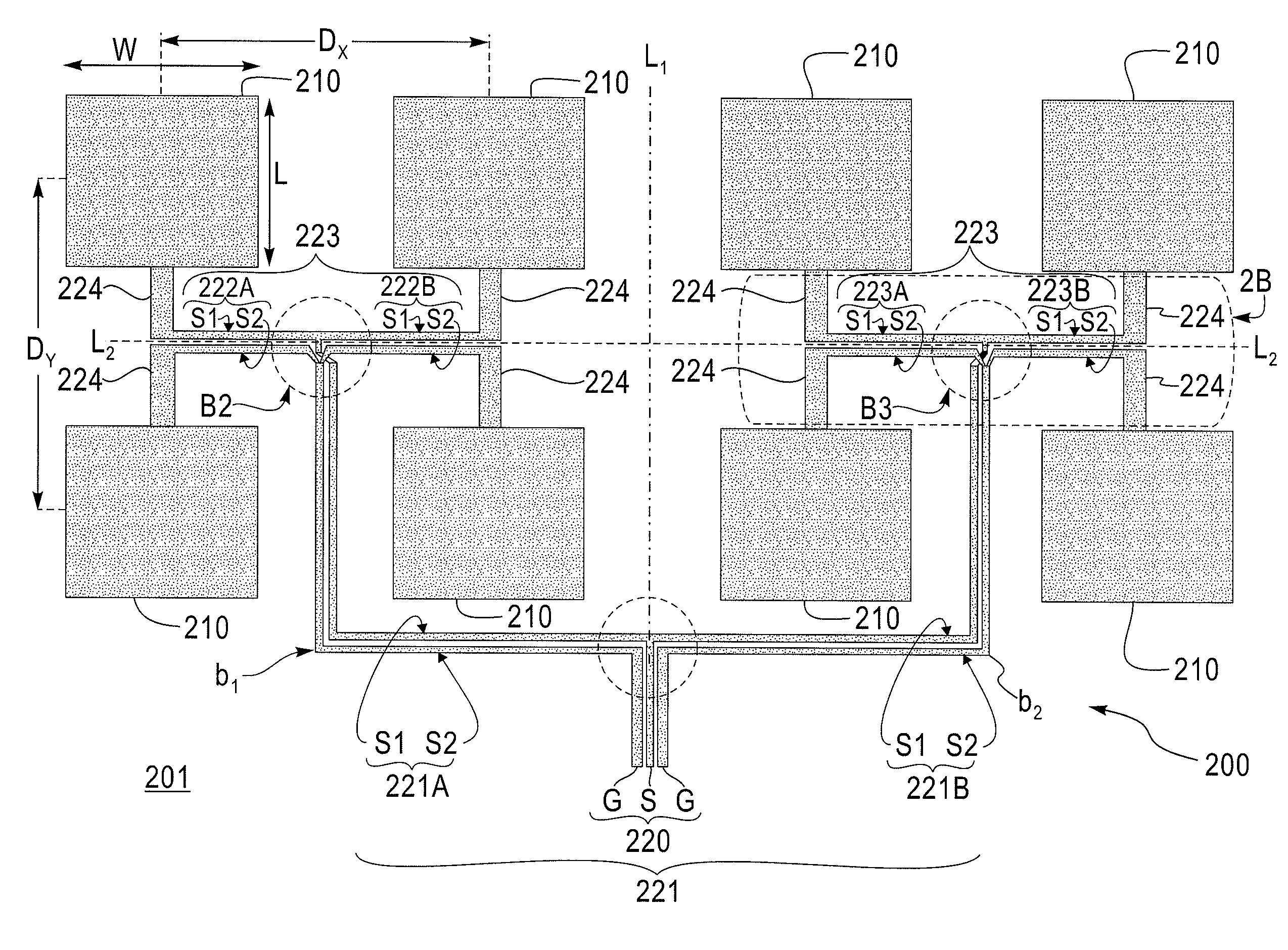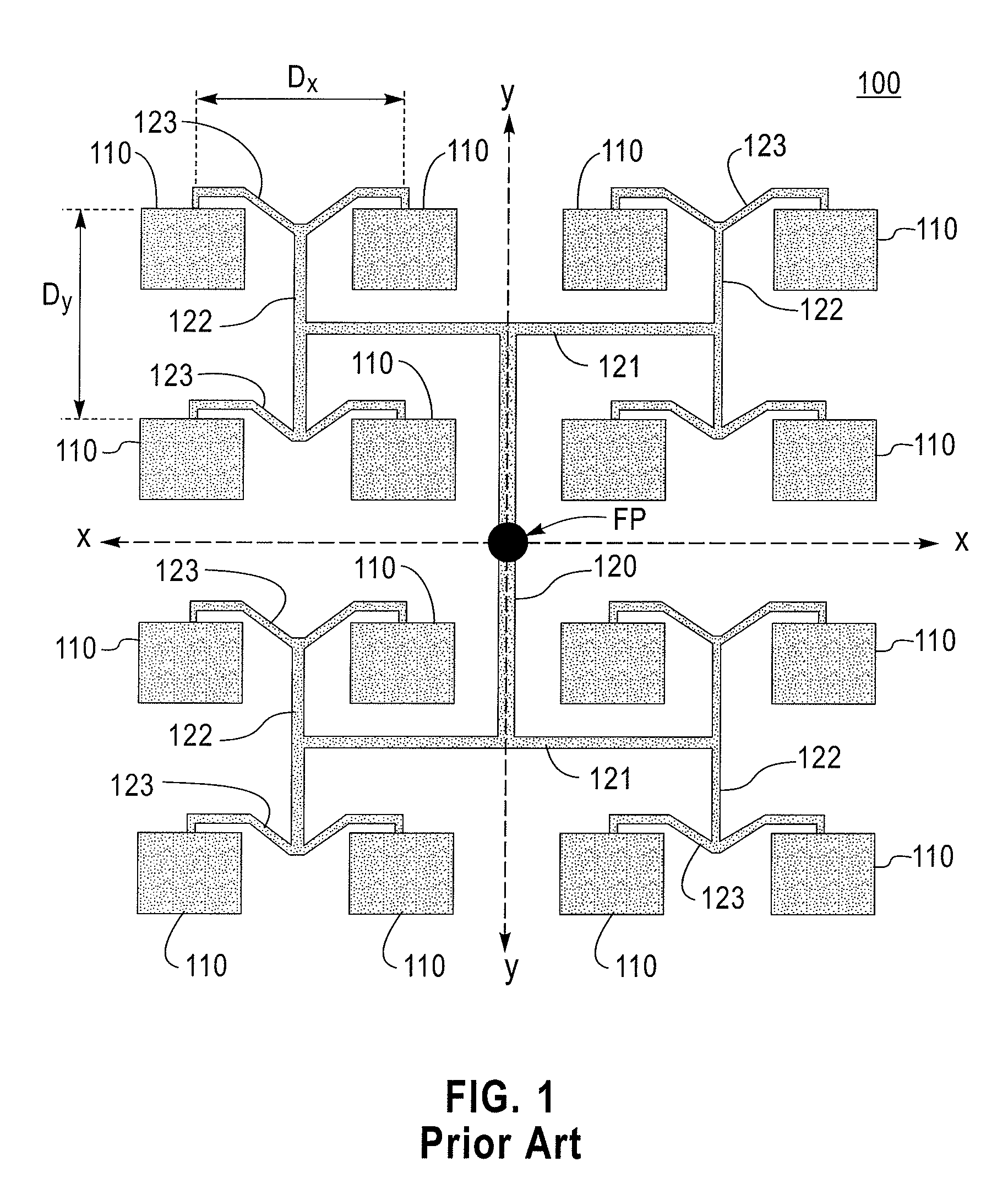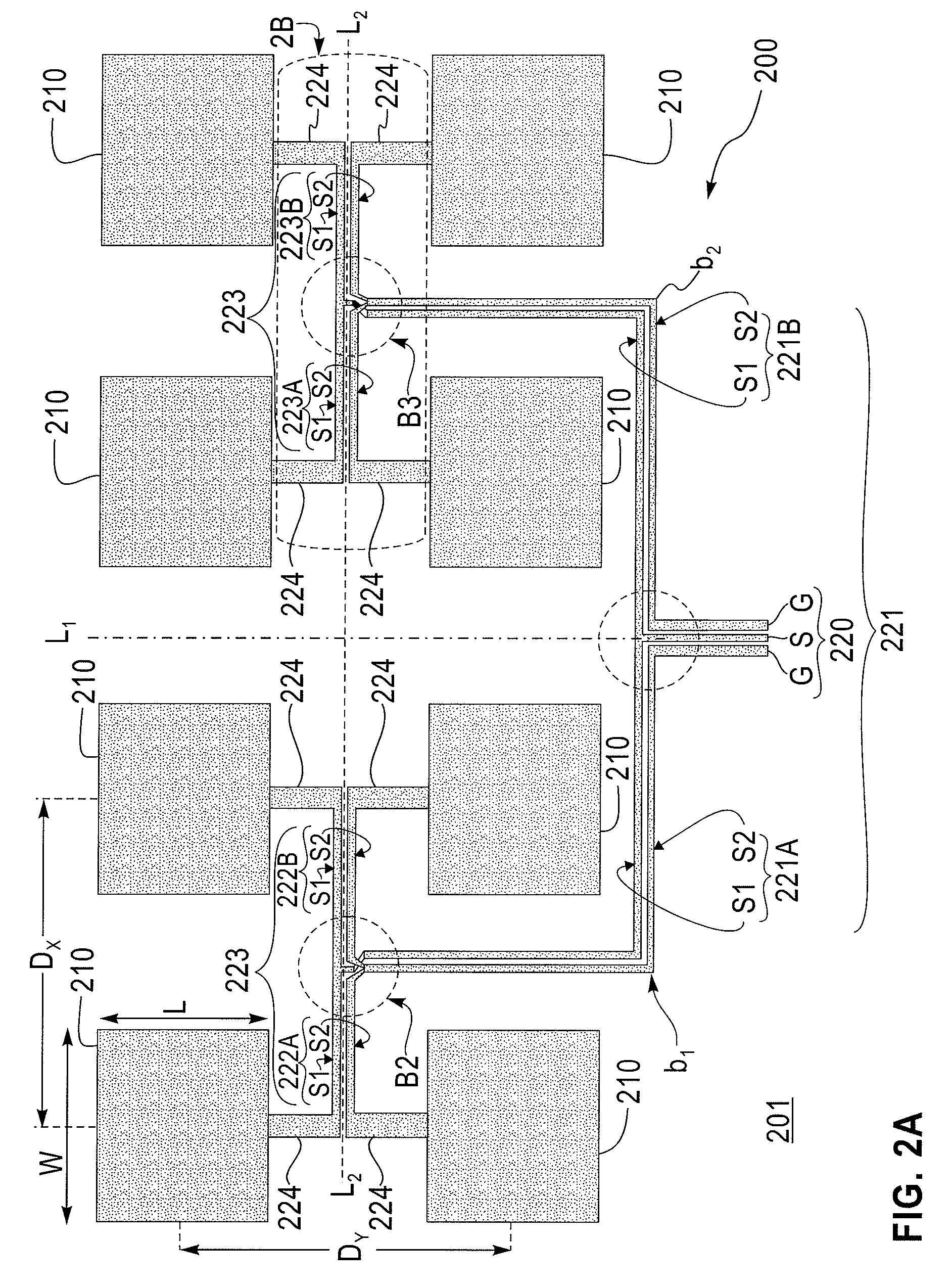Antenna Array Feed Line Structures For Millimeter Wave Applications
a technology of antenna array and feed line structure, applied in the direction of resonant antenna, particular array feeding system, radiating element structure, etc., can solve the problems of microstrip feed line network use, difficult to obtain desired gain characteristics, and certain amount of loss of antenna efficiency and gain, etc., to achieve high-efficiency operation
- Summary
- Abstract
- Description
- Claims
- Application Information
AI Technical Summary
Benefits of technology
Problems solved by technology
Method used
Image
Examples
Embodiment Construction
[0022]FIGS. 2A˜2B are schematic views of an antenna array device comprising an array of planar radiating elements interconnected by a feed network of coplanar transmission lines, according to an exemplary embodiment of the invention. In general, FIG. 2A is a schematic plan view of an antenna array device comprising a planar antenna array (200) that is patterned or otherwise formed on one side of a dielectric substrate (201). FIG. 23 is a detailed plan view of the portion of the planar antenna array (200) within the dashed region 2B shown in FIG. 2A. In general, the planar antenna array (200) comprises an array of radiating patch elements (210) that are uniformly arranged in rows and columns (2×4) of patch elements (210). The array of patch elements (210) are fed by a corporate structured feed network comprising coplanar transmission lines (220, 221, 222, 223), and short microstrip lines (224) that directly connect to feed points at edges of the patch elements (210). In the exemplary...
PUM
 Login to View More
Login to View More Abstract
Description
Claims
Application Information
 Login to View More
Login to View More - R&D
- Intellectual Property
- Life Sciences
- Materials
- Tech Scout
- Unparalleled Data Quality
- Higher Quality Content
- 60% Fewer Hallucinations
Browse by: Latest US Patents, China's latest patents, Technical Efficacy Thesaurus, Application Domain, Technology Topic, Popular Technical Reports.
© 2025 PatSnap. All rights reserved.Legal|Privacy policy|Modern Slavery Act Transparency Statement|Sitemap|About US| Contact US: help@patsnap.com



